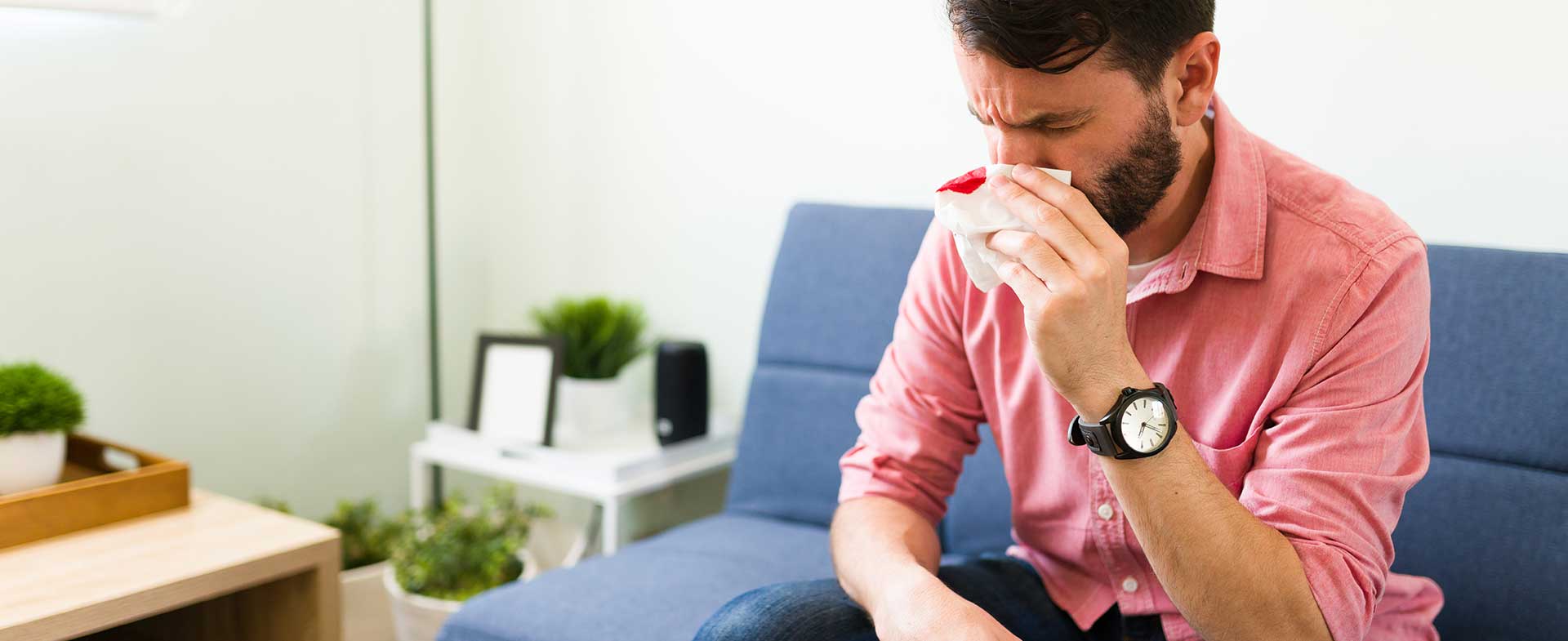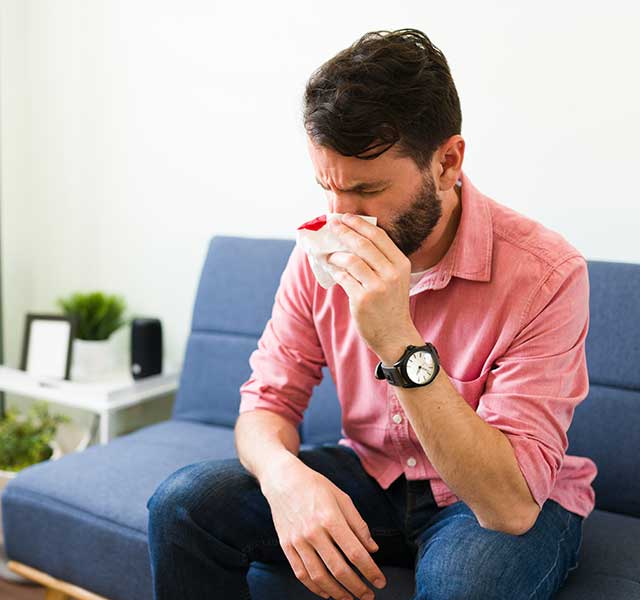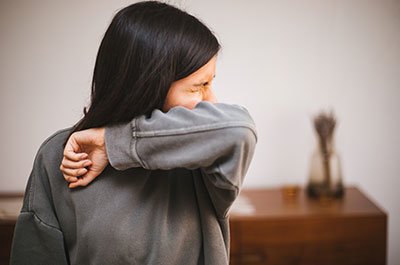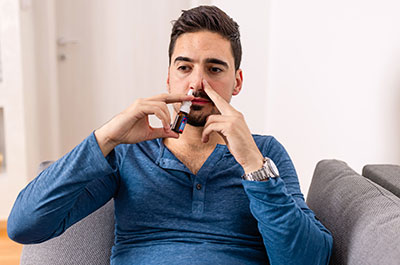Nosebleeds are fairly common, especially during cold, dry weather. While they can be a nuisance, you can usually resolve them on your own. But if you experience frequent nosebleeds, you might want to see a doctor to figure out why and find the right treatment.
“Most nosebleeds can be stopped at home. You can also take steps to prevent nosebleeds, especially during cold weather,” says Jacob Eide, M.D., a rhinologist (ear, nose and throat doctor specializing in the sinuses and skull base) at Henry Ford Health. “But if you’re experiencing more than two nosebleeds each week or seeing more blood than expected, see a doctor for care.”
What Causes Nosebleeds?
The most common cause of nosebleeds is dryness and dehydration of the mucosal lining of the nose. This dryness often occurs during cold weather. Air we breathe in through our noses gets humidified before it travels to our lungs.
As the nose dries out, the tiny blood vessels inside the nose can break and bleed. “Just as your skin can crack and bleed in cold weather, the same is true for the inside of your nose,” says Dr. Eide.
Most nosebleeds occur in the front of your nose on the septum, the middle part of your nose that separates your nostrils. Other common causes of nosebleeds include:
- Seasonal allergies and infections
- Vigorous nose blowing
- Bleeding or blood clotting disorders
- Medications that prevent blood clotting
Rarer causes of nosebleeds include:
- Hereditary conditions such as hereditary hemorrhagic telangiectasia (HHT), which causes abnormal connections between arteries and veins in the nose, lungs, brain and liver
- Vascular tumors that develop in the nose (most common in boys ages 12 to 18)
In children, the most common cause of nosebleeds is digital manipulation (nose picking). Repeated attempts to remove dry mucous from the nose can lead to bleeding.
How To Stop A Nosebleed
“If you experience a nosebleed, the first step to treating it is to stay calm,” says Dr. Eide.
Once you’re cool and collected, follow these steps:
- Lean forward so blood does not run down your throat.
- Use your hand to press on either side of the nose. Hold for 15 minutes.
- If bleeding continues after 15 minutes, use a decongestant spray like Afrin® (oxymetazoline), which will constrict blood vessels and slow bleeding.
- Reapply pressure on your nose for 15 minutes.
- After the bleeding stops, let your nose heal by avoiding vigorous nose blowing for one to two days.
How To Prevent Nosebleeds
Since most nosebleeds are caused by dryness, keeping your nose hydrated can help prevent or reduce bleeding episodes. Dr. Eide recommends these strategies to protect your nose:

ENT Care At Henry Ford
- Use a humidifier in your bedroom when you sleep, especially during cold weather.
- Spray saline (salt and water solution) drops in each nostril two to three times per day.
- Apply a petroleum-based gel on the septum (center portion of your nose) before bedtime.
When To See A Doctor
Sometimes, nosebleeds can continue even after you apply pressure and use a decongestant. Dr. Eide recommends seeking immediate medical care if bleeding continues for more than 30 minutes or is excessive (including having blood flow into your throat). You should also get immediate attention if your nose bleeds as a result of an injury to your nose or head.
“We can stop nosebleeds using a cautery (which uses a chemical reaction) or electrocautery to seal the affected blood vessels. The procedure takes five to ten minutes and is usually performed in the clinic,” says Dr. Eide. “If you’re on blood clotting medication and have a nosebleed, contact the doctor who prescribed your medication. Your physician may be able to change your dosage or medication to reduce bleeding episodes.”
Even if your nosebleeds stop quickly, you should see an otolaryngologist if you have worsening or frequent nosebleeds (more than twice a week) or a family history of frequent nosebleeds. “An ear, nose and throat specialist can determine the cause of your nosebleeds and recommend a treatment that’s right for you,” says Dr. Eide.
Reviewed by Jacob Eide, M.D., a rhinologist who sees patients at Henry Ford Medical Center - Plymouth and Henry Ford West Bloomfield Hospital.



